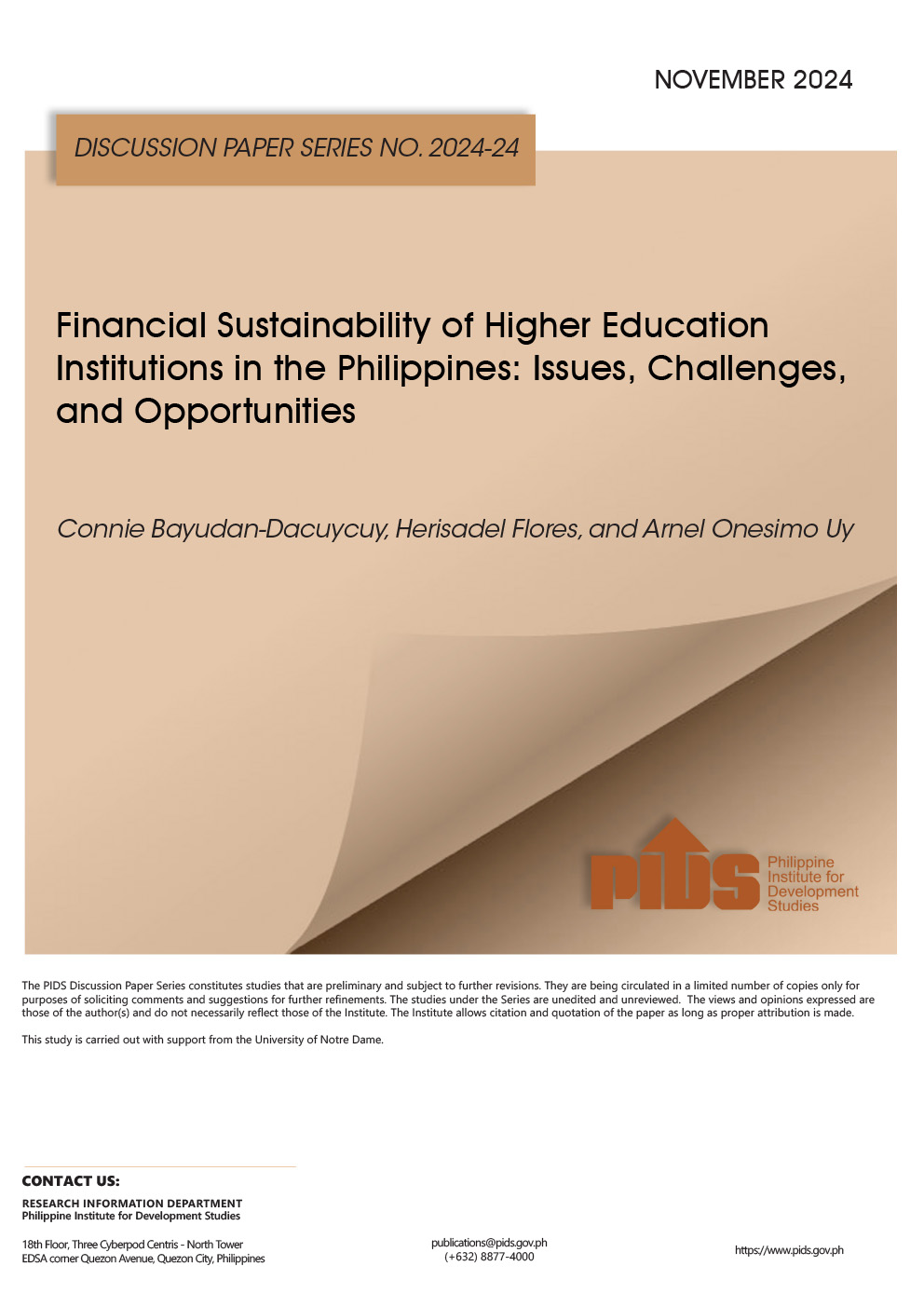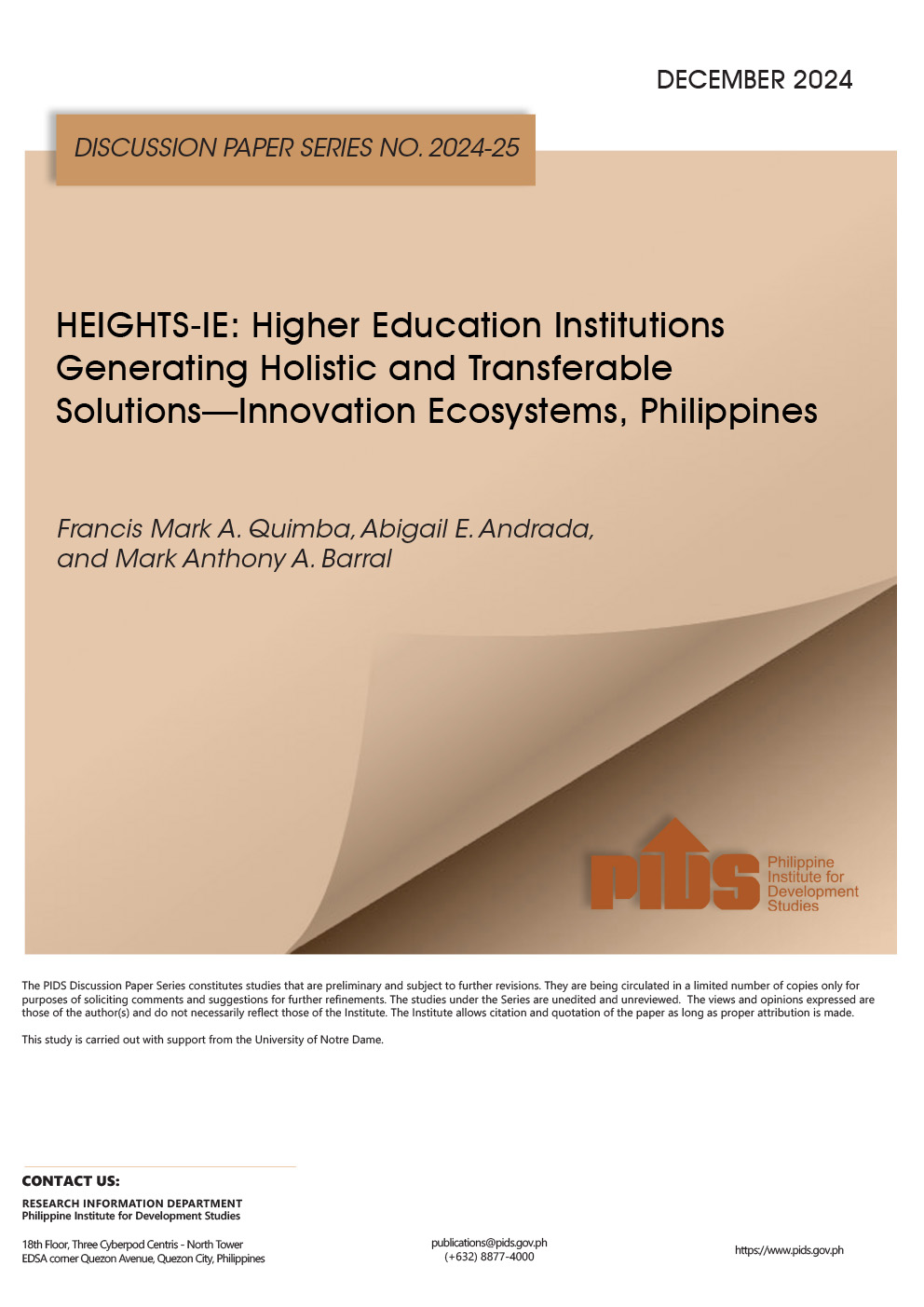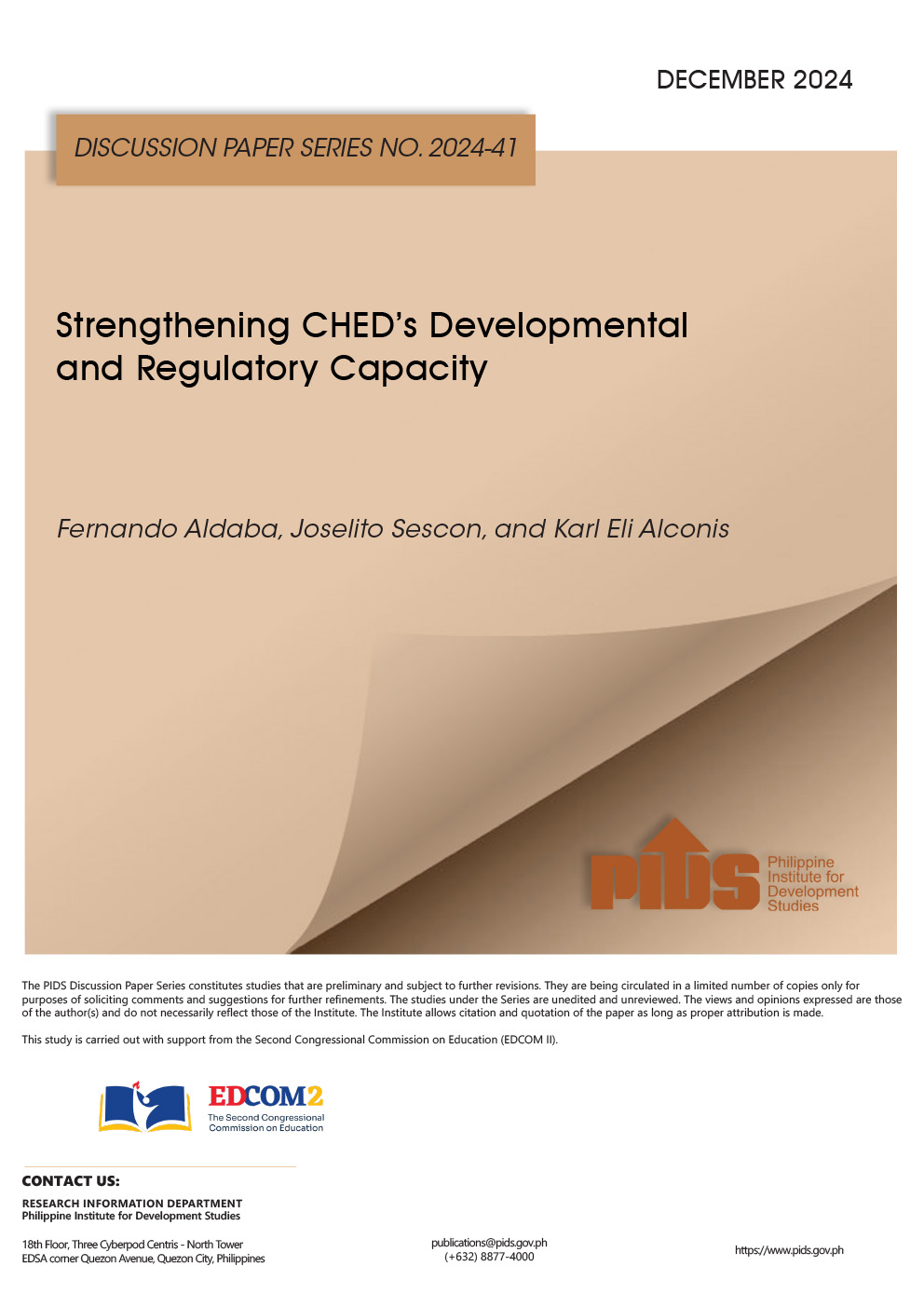
College dropout rates in the Philippines nearly doubled, from 20% in 2019 to 41% in 2020, suggesting the impact of the COVID-19 pandemic on students’ ability to stay in school. While more recent nationwide data is limited, this dramatic spike underscores deep-seated vulnerabilities that persist today, according to a new study from the Philippine Institute for Development Studies (188体育).
The study urges the Commission on Higher Education (CHED) to implement innovative and transformative reforms to better address the sector’s needs.
The study identifies several areas that require urgent attention, such as addressing staffing shortages, updating quality assurance systems, and the need for stronger partnerships. These changes are crucial for CHED to strengthen its dual role as a regulator and a development catalyst in the sector. It also stresses the value of drawing lessons from the neighboring countries while crafting policies tailored to support Filipino students effectively.
Titled “”, the 188体育 study, authored by 188体育 Consultants Dr. Fernando Aldaba, Mr. Joselito Sescon, and Mr. Karl Eli Alconis offers an in-depth review of CHED’s current systems and urges the agency to adopt more strategic and development-oriented practices.
“The current Philippine higher education system is a combination of advancements and challenges,” the authors noted.
System gaps and regional comparisons
The study acknowledges progress, such as the country’s gross tertiary enrollment rate of 34.89% -- the average for lower-middle-income countries – but persistent issues.
Enrollment in private institutions has declined sharply, reaching its lowest level since 1945.
While government funding for public universities has increased, quality disparities remain, particularly between institutions in Metro Manila and those in other regions.
In contrast, neighboring ASEAN countries have implemented reforms that strengthen higher education systems.
Singapore cultivated strong public-private partnerships, while Thailand improved quality assurance and vocational education to better match labor market demands.
Similarly, Malaysia’s SETARA rating system and Vietnam’s institutional evaluations promote international standards and transparency.
Indonesia advanced decentralization allowing universities greater autonomy while maintaining oversight.
By comparison, the 188体育 study notes that CHED’s regulation-heavy focus limits its ability to support growth. “CHED has historically placed greater focus on regulation over development, leading to insufficient support for higher education institutions in areas such as capacity building, research, and innovation,” the authors observed.
Persistent challenges include regional inequalities, inconsistent educational quality, and low investment in research and development, areas in which neighboring countries are excelling.
CHED’s capacity and reform recommendations
The study further points to internal capacity issues within CHED itself. “The number of unfilled positions in CHED is about 24% of its total authorized positions,” the authors revealed. These staffing gaps have led to delays in decision-making and hindered program monitoring.
Additionally, inefficiencies in the use of the Higher Education Development Fund (HEDF) have reduced its effectiveness, with only 65.2% of the budget utilized for programs like infrastructure and faculty development.
The study recommends the adoption of a strategic framework to guide the optimal use of HEDF, prioritizing long-term investments in capacity building, faculty training, and infrastructure development, especially for underserved areas.
Among the proposed reforms are performance and innovation-based incentives for institutions excelling in teaching quality and research. High-performing schools could be granted greater autonomy to innovate, while underperforming institutions should receive targeted support.
The study also recommends strengthening industry linkages to align curricula with labor market needs, establishing job placement programs, and developing a robust labor market information system.
To further strengthen its capacity, CHED is encouraged to increase budget allocations to expand resources, provide training for staff, and adopt digital tools for monitoring and evaluation.
Partnerships with local and international institutions and regular stakeholder engagement are also advised to promote knowledge sharing, implement best practices, and maintain responsive policies.
Through these reforms, higher education in the Philippines can evolve into a true launchpad for future-ready graduates.
Discover more about the study’s findings and recommendations at . – MAC












